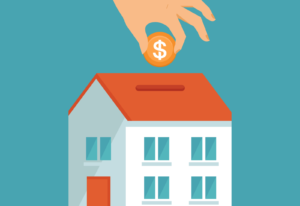In combination with several other factors, the COVID-19 pandemic has had an enormous impact on the U.S. residential housing market: home prices nationwide have risen by an astonishing 24.8 percent since March 2020. The most significant of those “other factors” is scarcity; at the end of 2020, Freddie Mac estimated that the United States was 3.8 million housing units short of meeting demand.
While the domestic residential real estate market has been smoking hot, investments by foreign individuals and companies fell off a cliff during the pandemic. In May, we reported that in the 12 months from April 2020 through March 2021, overseas investments in Manhattan real estate plunged 79%, according to Real Capital Analytics, reported by Bloomberg.
At the same time, other markets were much less affected. Seattle saw inbound foreign investment shrink only 11 percent, to $2.5 billion, and the Emerald City overtook the Big Apple as the most attractive urban real estate market for overseas investors. In general Freddie Mac reports that housing demand is shifting to urban areas in more affordable cities across the Midwest, South, and West.
Overall, foreign buyers spent $267 billion on U.S. real estate in 2018 and $183 billion in 2019, before the pandemic, according to the National Association of Realtors. During the pandemic foreign buyers were unable to visit prospective investments, but the opening of the U.S. border to vaccinated travelers from 33 countries in early November is expected to restart foreign investment.
From my perspective, the U.S. residential property market may not offer the best opportunities. With supply low and demand high, there are few if any bargains, and everyone who is in the market has stories of properties being snapped up at significant premiums to asking prices, sight unseen (except via Zoom or FaceTime).
Another option is the U.S. retail and multi-family real estate market. Most people can relate to these asset classes (who hasn’t rented an apartment and visited shopping malls, restaurants, and similar establishments?), and as a result most people can intuit the issues that may arise when investing in these properties, while assembling an experienced and knowledgeable advisory team.
Investing in retail and multi-family properties
First, the United States has one of the largest established commercial real estate markets; with a large market, you have more buyers and sellers; and you have an established and reliable financial system to fund purchases—whether as investment or loans. Investors who understand these systems, and the metrics that are used in valuing the viability of projects, can make more accurate predictions and projections.
Second, the U.S. has one of the strongest legal systems offering property rights protection to investors. This allows for investment predictability and security, as long as you know the rules!
Third, in this sector, investors have more options in their quest to increase the value of their investment(s). Reinvesting in a property through capital improvements and other enhancements can have a nearly immediate payback in terms of justifying higher rents. Sometimes, an acquired property has been poorly managed, and managing the property better will attract better tenants, increasing the cash flow. Since valuation of commercial property is dependent on cash flow, increasing rents can increase the value of projects.
Fourth, retail and multi-family real estate can be a good inflation hedge. With interest rates low and property values increasing, inflation can enable higher rents, again increasing cash flow.
Finally, although much has been made of pandemic-related “urban flight”, this is largely a myth. More than more than 80 percent of the U.S. population are considered urban residents, and this is a trend unlikely to change.
Due diligence is vital
We have written often about the importance of due diligence (my colleague Fred Rocafort wrote a good post earlier this year about due diligence in the challenging pandemic environment) and due diligence is more important in the retail and multi-family context than for purely residential investment simply because there are more moving parts.
First of all, investors should understand local market conditions. Check out the comparables. In the geography in which you hope to invest, what are the market conditions for the type of project you care considering (e.g. multi-family residential building, retail outlet, strip mall)?
Do you really want to invest in a gas station right across the street from a Costco (which usually incorporates a low-cost gas station)? If you are considering developing an apartment complex, what is the market supply in the neighborhood, including units that are expected to be available within the coming few years?
Are there other considerations? Any hidden environmental costs, e.g. for regulator-mandated clean-ups?
Do you have a good sense of local costs, e.g. for renovations? Understanding costs is vital to deciding if an investment makes sense.
Assembling a team of knowledgeable local advisors
As we have written many times on this blog in many business and investment contexts, many laws and regulations govern business and investment in the U.S. – what’s most important is to be as informed as possible about the relevant operational and legal contexts, and to get sound legal advice every step of the way when you’re making investment and business decisions.
When you are assembling your team of local real estate investment advisors, you want to look for advisors who understand your objectives and can be trusted to safeguard your interests.
Real estate agents
These are people who understand the market and know the lay of the land intimately; they are the ones who are out there prospecting for you. They are paid on commission, so treat them well. You’ll find that the longer you work with certain agents, the better deals you’ll get from them.
Property Managers
Everyone who has ever rented a property can tell stories of good property managers and bad ones. The bad ones lower the value of a property; the good ones can increase it. Find someone with a good reputation who is a good and responsive communicator.
Architects and designers
If you want/need to make significant improvements, you’ll want to work with experienced architects, designers, other land use professionals who understand local regulations and can help you with permitting and other issues.
General contractors and subcontractors
You will eventually need to curate a list of outstanding plumbers, electricians and handy(wo)men. This can be a slow process, or you may get lucky with an early recommendation. But if you have tenants, you will have tenant issues that need to be addressed urgently.
It takes time to establish good relationships, but investing in quality pays dividends.
In all cases, you should put into places contracts that protect you as an investor and owner.
Issues for real estate investors to consider
If you are looking to establish (or further develop) a real estate presence in the U.S., some of the issues you will face include:
- Finding the best location and negotiating the best price
- Acquiring the property after conducting necessary due diligence to understand and minimize legal and business risk
- Navigating complex regulatory structures
- Structuring sensible financing
- Making strategic entity decisions and minimizing tax liability
- Obtaining necessary permits and licenses for construction and operation
- Dealing with zoning, restrictive covenants, and encumbrances
- Finding and enlisting construction, title, and other service providers
- Preserving anonymity when possible
Our real estate attorneys have decades of commercial real estate experience and speak many languages, including Chinese, Russian, Spanish, French, Portuguese and German. Our understanding of how real estate markets work in other countries helps us ensure that our clients are invested comfortably in U.S. markets with minimal risk and an eye to maximum returns. We also are experienced real estate litigators, bringing strong negotiation and risk mitigation skills to every transaction.
If you have any questions, please feel free to ask in the comments section below or drop me a line!

























